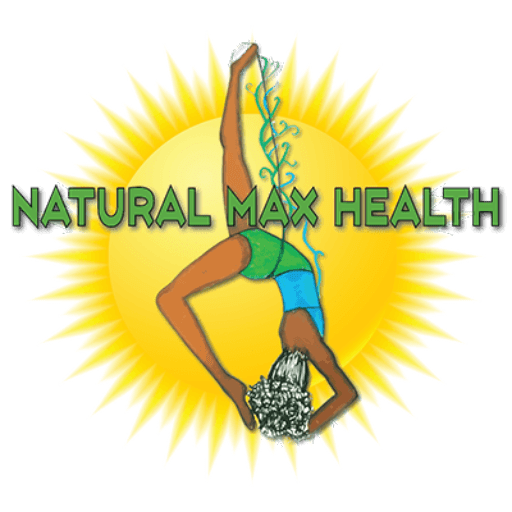Mineral Deficiencies: The Root Cause of Human Diseases

Essential Knowledge to Safeguard Your Health—Learning How to Avoid Mineral Deficiencies
Micronutrients Are the Building Blocks of Life and Health
Essential micronutrients are the fundamental building blocks of life and health. Consuming a balanced diet that contains all the necessary micronutrients is imperative to maintain good health and prevent deficiencies. Micronutrients, such as minerals and vitamins, are vital for the body’s normal functions. Minerals either act as a significant part of the function or as a catalytic cofactor, playing an essential role in the basic functioning of life. Similarly, vitamins are categorized as micronutrients, but the body cannot utilize them without mineral cofactors. This means mineral cofactors are required in every metabolic cycle, biochemical reaction, hormone function, subcellular and digestive enzyme, and even oxygen utilization. Without these cofactors, no biological process is possible. Therefore, even a deficiency in just one mineral can cause organs and systems to malfunction, leading to symptoms and even death if not treated.
Dr. Joel D. Wallach, a biomedical research pioneer for over 30 years, has identified 90 essential nutrients our bodies require for optimal function. Nutrients that the body cannot produce must be obtained from food or supplements. These nutrients are crucial to human health, and their elimination from the diet can lead to sickness or disease.
The Human Body Requires Essential Nutrients to Function
The human body requires a range of essential nutrients to function correctly. These nutrients include minerals, vitamins, amino acids, and fatty acids. Out of the 90 essential nutrients, minerals constitute 60. However, minerals are most likely missing from our diets because plants cannot manufacture them, unlike vitamins, essential amino acids, and fatty acids. Plants absorb minerals from rocks, soil, and water. In an ideal scenario, we could get our daily requirement of minerals by consuming plants that grow in mineral-rich soils and animals that feed on these plants. Unfortunately, commercial farming, along with acid rain and topsoil erosion, has depleted our soil of most minerals. As a result, our food supply has also become impoverished, ultimately affecting our health.
There are two types of essential minerals that our body needs – major minerals and trace minerals. Major minerals include calcium, chloride, magnesium, phosphorus, potassium, sodium, and sulfur, which are required in substantial quantities by our body and are stored in the body. Trace minerals such as chromium, copper, fluoride, iodine, iron, manganese, molybdenum, selenium, and zinc are essential for our health, but only in small amounts.
Poor Lifestyle Choices Can Lead to Mineral Deficiencies
Although plants and animals are good sources of minerals, it is important to supplement our diet with these essential minerals if our diets lack them. Mineral deficiencies, combined with unhealthy lifestyle habits and poor diet, can interfere with the absorption of minerals and can result in most diseases that are often thought to be genetically transmitted. Some scientists claim that genes are responsible for only 2 percent of diseases, while lifestyle factors are responsible for the rest. As the saying goes,
“Genetics loads the gun; lifestyle pulls the trigger.”
Attributed to Mehmet OZ
It’s not common knowledge that mineral deficiencies can play a significant role in causing diseases and even death. When people die, pathologists usually look for pneumonia, trauma, ruptured aneurysms, blood clots, perforating gastric ulcers, heart attacks, and cancer. They might conduct a chemical or drug screen if the clinical case history requires it. However, the nutritional deficiencies that cause aneurysms, diabetes, blood clots, heart attacks, cancer, Alzheimer’s, and even osteoporosis are usually not documented in the autopsy report. As a result, clinical nutrition in human health never progresses. Deficiency in one mineral can result in multiple diseases. For instance, calcium deficiency alone can lead to as many as 147 different disorders, including osteoporosis, Bell’s Palsy, tinnitus, trigeminal neuralgia, and spinal stenosis.
The Correlation Between Selenium and Age Spots
Selenium deficiency is a serious concern as it can lead to infertility, miscarriages, and cystic fibrosis of the pancreas. In older adults, liver or age spots are often the first signs of selenium deficiency. These age spots can appear on the skin and in critical organs such as the brain, eyes, thyroid gland, heart, lungs, liver, kidneys, intestines, bone marrow, and muscles. Dr. Wallach refers to this phenomenon as the “pigment of aging,” scientifically known as ceroid lipofuscin. This pigment is essentially a buildup of free radicals that can interfere with cell function and increase the risk of developing cancer, Alzheimer’s disease, and heart disease.
Incorporating selenium supplements into your diet and limiting consumption of margarine and fried foods is recommended to improve liver and age spots on the skin. Following these measures may eliminate these spots from the skin and the body’s internal system.
The Copper Connection: Vital for Artery Health and Beyond
Copper is essential for producing the heavy elastic fibers in arteries. Deficiency of copper leads to aneurysms. The first signs of copper deficiency in humans include white, gray, or silver hair, skin wrinkles, crow’s feet, spider veins, varicose veins, hemorrhoids, liver cirrhosis, iron storage disease, and iron-resistant anemia. Dr. Wallach further opines that taking plant-derived colloidal copper supplements can restore the original hair color, alleviate spider veins, varicose veins, hemorrhoids, and even heal some aneurysms. Additionally, selenium deficiency can cause cardiomyopathy, while selenium and vitamin E deficiency can lead to muscular dystrophy. Magnesium deficiency, on the other hand, can cause arteriosclerosis and many other ailments.
Why Proper Absorption of Minerals Is Crucial for Good Health
It’s equally essential to absorb minerals as it is to consume them. According to Barber O’Neil, the Health Director at Misty Mountain Health Retreat and author of “Self Heal by Design,” calcium requires sunlight to be absorbed by the body, and all other minerals piggyback on calcium. Therefore, not getting enough sun can result in mineral deficiencies.
Whole grains, seeds, legumes, and some nuts contain compounds that may inhibit the absorption of key nutrients like iron, zinc, magnesium, and calcium, according to Science Direct.com. These compounds include phytic acid or phytates, saponins, and tannins. Saponins in legumes and whole grains can interfere with normal nutrient absorption. In contrast, tannins in tea, coffee, and legumes can decrease iron absorption. When planning your diet, it’s essential to be aware of these compounds and their potential impact on nutrient absorption. Furthermore, some habits can also affect nutrient absorption, such as consuming an inflammatory diet high in wheat, grains, and sugary and processed foods.
Digestive Health and Vitamin D: A Vital Connection
It’s important to note that eating while hydrating (drinking while eating) can neutralize the hydrochloric acid in the stomach, which delays the digestion process and interferes with nutrient absorption. Similarly, eating while stressed can cause the digestive system to stop, making it impossible to absorb nutrients. Chronic stress, dehydration/overhydration, and eating too quickly can negatively impact the digestive process and nutrient absorption.
Vitamin D acts more like a hormone and regulates hundreds of essential pathways in the body. According to Dr. Will Cole, senior Functional Medicine clinic director in Pittsburgh, PA, every cell requires Vitamin D to function properly. Vitamin D is synthesized by our body when we expose our bare skin to sunlight. Once the skin has been exposed to sunlight, it takes approximately 2 hours for the synthesis to occur, as per Barbara O’Neil. Therefore, It is recommended to wait at least an hour after washing your skin with soap before exposing it to the sun to ensure the full benefits of Vitamin D synthesis.
Since it is not possible to get enough Vitamin D from food alone, it may be necessary to take Vitamin D supplements, especially if you live in a place with limited sunlight and use sunscreen. Consuming Vitamin D supplements and Vitamin K is advisable for better results.
Mineral Deficiencies in Tiny Humans
Mineral deficiencies are more prevalent in this generation of children than in any other generation. Due to poor diets, they are overfed and undernourished. This generation is the first to have a shorter life expectancy than their parents. Diseases once exclusive to the elderly are now affecting children. This generation also has more overweight and obese children than any other recorded generation in history.
Many children’s supplements only address vitamin deficiencies despite minerals being the root cause of disease and death. Children require both vitamins and minerals.
Boosting Child Health: Herbal Solutions for Happy, Healthy Kids
I am particularly fond of children, as I, like many others, have had to deal with several health issues in my adult life that stemmed from unresolved childhood health problems. My Nutrition for Tiny Humans product line of herbal supplements is specifically formulated to prevent or treat nutritional deficiencies in children.
Our Tiny Human product line contains herbal compounds that strengthen your child’s immune system, promote healthy digestion, and improve regular bowel movements. These functions are crucial for your child’s overall health. According to Linda Page, author of “How to Be Your Herbal Pharmacist,” children respond well to herbal medicines. Please visit our Nutrition-for-Tiny-Humans section in our shop to learn more about our product line designed specifically for children.
